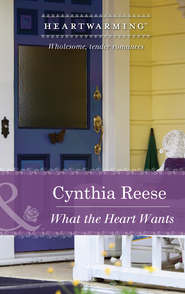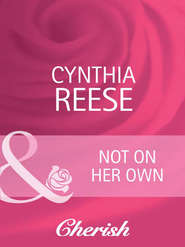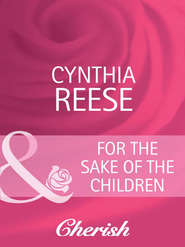По всем вопросам обращайтесь на: info@litportal.ru
(©) 2003-2025.
✖
Secret Santa
Автор
Год написания книги
2019
Настройки чтения
Размер шрифта
Высота строк
Поля
“Yeah. I ducked out without saying bye to my mother—my mom has a whole entourage attending her, and I just needed a breather.”
“She has friends from everywhere, doesn’t she?” Neil mused. “Even some ladies from Macon came down. Old college roommates, I guess, right?”
Charli bit her lip. She knew the ladies Neil had referred to. They were members of her mother’s compulsive-shopper support group. She’d been glad they’d made the trip down for her mom, but it did lead to questions Charli wasn’t quite sure how to answer.
“Something like that. They’ve been friends for a long time,” Charli told him, hating that she was lying. To change the subject, she asked, “So how did you get started with all these Christmas decorations?”
Neil seemed taken aback by the lightning-quick subject change. “Oh, well. That polar bear over there was my first one. Saw it at a big-box hardware store and I swear the rascal was so cute I couldn’t leave him there. Got him on sale, too.”
“One little polar bear? Led to all this? Remind me not to put up so much as a Christmas light. I might catch your Christmas spirit.”
“I don’t think it’s contagious, not so much, anyway, without years of exposure. My family has always made a big deal out of Christmas, so I had a lot of encouragement. My mom loved Christmas.” Here, Neil’s words were husky and she noticed his jaw worked a little.
“Your mom...”
“I lost her a long time ago. When I was six. But she always decorated for Christmas—all the lights, all the mistletoe and the popcorn garland. I still smell popcorn and think of her stringing together garland for the tree.”
“Oh, that’s sweet.” Charli swallowed past the lump in her throat. He’d lost his mom so young and still his grief was almost palpable. Whoever said time healed all things was just full of it. She’d never be able to think of the holidays without remembering how she’d lost her dad so close to them.
Neil cleared his throat. “Yeah, well, that’s why I love Christmas. And when I moved here, people just seemed to urge me on.”
“Well, you’re decorating enough for the two of us, so forgive me if I skip Christmas,” she said.
Neil cocked his head and pinned her with a look. “You mean to tell me you don’t plan to put up a single Christmas decoration this year?”
“Nope. Not even a wreath.” It wasn’t really a big stretch, actually. Christmas in the past for Charli had meant huge blow-up fights between her mom and dad over her mom’s secret shopping sprees. Her mom had just wanted to get the perfect gifts for her family, while her dad had simply wanted to stay in the black and out of debt. And then college and medical school and residency had meant Charli had spent the holidays apart from her parents the past few years.
“Come on! Your dad loved Christmas! You can’t skip it!”
She whipped her head around to look at Neil. She wasn’t one to lay out dirty laundry for people. She tried to speak to the truth of her memories without putting in all the details. “My dad? Christmas was just another day for him. I mean, we opened presents, sure, went to the Christmas cantata most years, but Christmas Eve and Christmas morning he spent at the hospital mostly, with patients. I know. I was with him a lot of the time.”
Neil’s eyebrows went up in surprise. “That’s not the guy I got to know. He’s one of the main people who suggested I use my display to raise money for charity. And he was the Christmas parade grand marshal for two years running, plus he served on the Christmas downtown celebration committee. Are you sure we’re talking about the same guy?”
Charli wasn’t. But it irked her that Neil had known a different side of the man she’d thought she’d known inside out. “He always—well, he always said he could take it or leave it,” she said.
Neil shook his head and reached over to tweak an errant light into place from where he sat on the steps. “That’s amazing. Your mom and dad were a force to be reckoned with around the holidays—your mom was a fixture on the Christmas tour of homes. Yeah, maybe their decorations weren’t as—shall we say—dime-store tacky as mine, but they went all out. Your dad even beat me out on the Christmas lights competition last year.”
Charli couldn’t reconcile what she was hearing with the dad she’d known and loved, despite his flaws. She couldn’t help but mutter, “I’ve been gone so long...maybe I didn’t know him at all.”
Neil sprang up and stretched out his arm. “Then let me introduce you to him, the man your father became.”
She hesitated, then placed her hand in his. It was a nice hand, with just the right grip—warm and comforting and sure of itself. Part of her wanted to yank free and run for her house, because she didn’t want to contemplate how she could have missed knowing one thing about her dad. But his hand in hers seemed to reassure her. That, and her curiosity, got the better of her.
“Okay.”
Five minutes later, Neil had parked on the downtown square. “Ready to commence the walking tour?”
On the sidewalk, a brisk wind tugged at Charli’s hair, but her jacket kept her warm in the darkening evening. Neil strolled beside her, in no hurry. As they went, he pointed out various buildings and causes and people that her father had championed. It was a revelation to Charli—she’d known of his fight to keep the hospital, but she’d had no idea he’d worked to revitalize the downtown area or to assist the Boys and Girls Club, or that he’d served on the permanent homes for foster children board.
“No wonder he had a heart attack,” she said as she and Neil came to a stop on a street corner. “He worked himself to death.”
“Oh, no, you don’t think that, do you?” Neil peered at her. “Nah, I didn’t think so. It seemed to energize him, actually. And he’d recently taken on a new project.”
“Yeah? When did he have time?”
“Come on. You’ll like this.” He started off down the sidewalk toward the rougher side of town.
She hesitated. “Neil...things may have changed a lot, but the direction you’re heading in used to be a hotbed of drug sales.”
“It’s okay. It’s cleaned up now—at least a little. Thanks to Dr. Prescott.”
A five-minute walk brought them in front of a new metal building with big glass windows, the lights on and the paved parking lot still dark with crisp yellow lines. The parking lot was overflowing with cars of every shape and size, none of them any newer than a decade. On the building’s metal exterior were simple block letters: Brevis Community Clinic, and underneath, in Spanish, Clínica de la Comunidad.
“Huh?” Charli gawked at the building. “What is this? Why isn’t it near the hospital and the rest of the doctors’ offices?”
“Let’s just say the hospital authority didn’t welcome this addition to the Brevis medical community,” Neil said. “But your dad saw the need for a community clinic. He said that a lot of people were uninsured and couldn’t afford or wouldn’t go to a regular doctor. But they’d come here. He really fought for this place.”
A group of people came out of the building, walking down the painted concrete block steps, talking excitedly in Spanish. Another car door opened and more Hispanic people headed for the clinic door.
“It’s an indigent care clinic? For migrant workers?” she asked. She couldn’t wrap her head around the idea that her father, who’d been so opposed to the migrant workers flocking here when she was a girl, would fight for a community clinic.
Neil smiled. “Yeah—well, of course it’s open to anybody, and a lot of the community’s uninsured use it. But mainly it’s used by the migrant workers. Your dad volunteered as the medical director, but a doctor who comes in a couple of days a week and a couple of nurse practitioners provide most of the care. At least, I think so.”
“Wow. I—I—” She turned to Neil, grabbed his good hand and squeezed it. “Thank you. Thank you. I have to admit, the man you’ve described isn’t one I would have recognized...but he sounds like a great guy.”
“He was. And he must have been with you, too, because...well, you turned out pretty terrific. I’m just sorry that he didn’t get the chance to show you all this. I’ll bet he would have—if he hadn’t been battling the E.R. staffing problem,” Neil told her.
Charli wasn’t so sure. Granted, she hadn’t been home much in the past seven years, but she and her dad had spent time together. Never once had he mentioned any of these things that Neil had shown her. Of course, a lot of that time her dad had spent trying to talk her out of pursuing an M.D., and talk her into getting married—to have some babies and be happy—all the things that she didn’t want to do.
Maybe they’d just spent too much time arguing without ever truly understanding each other.
“So...now you see,” Neil said, interrupting her thoughts. “Your dad loved Christmas—you’ve got to at least let me help you put up a tree and hang a wreath.”
Perhaps it was because she was flat-out jealous that Neil had seen a side of her father she hadn’t known, or maybe Charli simply wasn’t ready to be rushed into anything. Whatever the reason, Neil’s emphatic “got to” grated on her nerves.
“No,” Charli retorted, “I don’t. And I don’t appreciate you trying to guilt me into it. Why can’t you just live and let live?”
Neil put up his hands. “You’re absolutely right. I just thought it might make you feel better.”
“Everybody from my mother on down seems to think they know what’s best for me, including you. I can’t turn around without someone suggesting another way to move on with my life. Well, maybe I don’t want to move on just yet! And maybe seeing a tree in my living room would just make me miss my father even more!” Charli knew the words weren’t fair, but they came tumbling out, anyway.
“Whoa.” A muscle in Neil’s jaw worked. She could see he was angry—or at least trying to bite his tongue. Very carefully, he said, “I lost my mom right before Christmas. So I understand what you’re going through. I know how afraid you are about forgetting your dad, about how guilty you feel—”
“I don’t have anything to feel guilty about,” she snapped. “Not a thing.” It was a lie, a big one. She did feel guilty, horribly, horribly guilty, especially now that Neil had shown her the father she’d never get the chance to know. Still, she wasn’t about to let Neil Bailey know it. “And I think I want you to take me home now.”
CHAPTER FOUR
CHARLI SAW LIGE WHITAKER, the bank president who also served as the hospital authority board chair, come out of his office when she approached the bank’s customer service desk. Today he was in banker’s garb, but usually, even to the hospital authority board meetings, he wore jeans and a flannel shirt.











